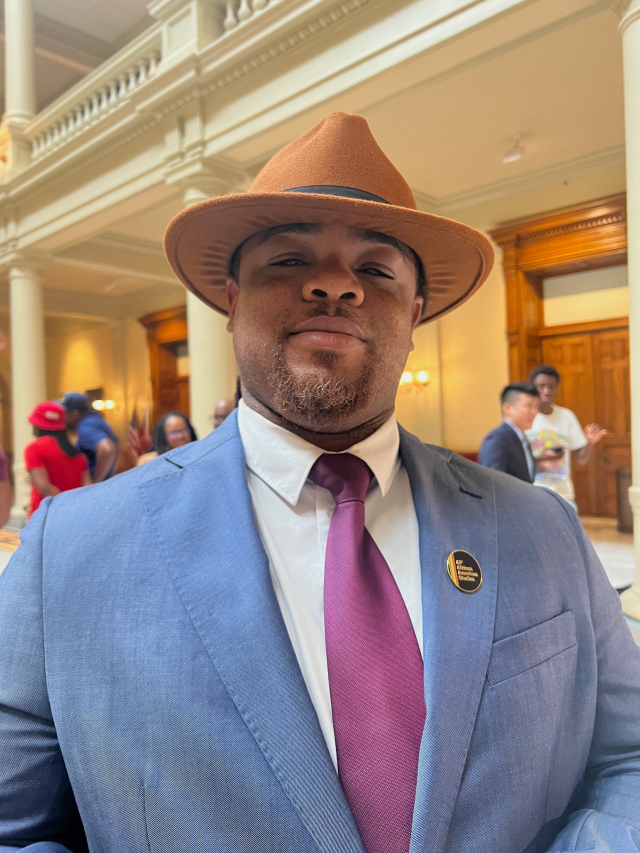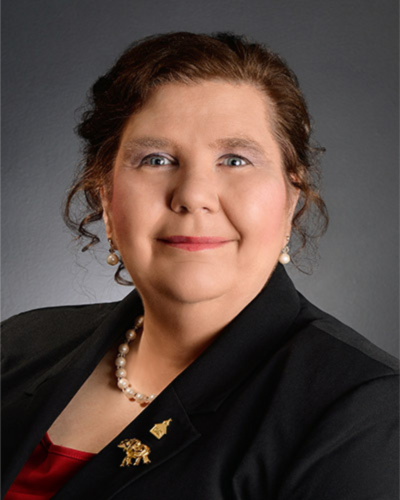Stay ahead of the curve as a political insider with deep policy analysis, daily briefings and policy-shaping tools.
Request a Demo
(Design: FamousAfricanAmericans.org)
- Georgia school superintendent tries to explain decision to drop AP African American Studies from curriculum
- Head of state’s largest teachers group calls Superintendent Richard Woods’ approach ‘unethical’
- African American studies expert: Woods putting Georgia students at “competitive disadvantage”
Rashad Brown has been teaching Advanced Placement African American Studies at Atlanta’s Maynard Jackson High School for three years. He’ll continue to do so — even though the state’s top education official removed it from the list of state-funded course offerings for the upcoming school year.
While Brown prepares to start teaching his class on Aug. 1 with the financial backing of Atlanta Public Schools, Georgia School Superintendent Richard Woods is busy addressing the controversy that erupted from his unilateral decision. Educators and lawmakers are looking for answers from Woods — as is Gov. Brian Kemp, who sent a letter Wednesday night with 10 questions intent on getting to the heart of the matter.
A spokesman for the governor said Thursday that Woods has not yet responded.
Woods’ decision not to recommend AP African American Studies for the state’s curriculum offerings became public earlier this week and quickly drew criticism from lawmakers, civil rights groups, clergy, educators and students.
Woods appeared to try to set the record straight Wednesday, but his efforts only fueled more confusion and outrage. Some see it as a reversal, while critics see it as insulting and unethical.
“There has been an African American Studies course code in the catalog of state-funded courses since 2020,” Woods said in a two-paragraph statement sent to State Affairs. “Districts using this course code will receive state funding. Should districts choose to do so, they may teach some or all of the standards in the AP African American Studies course using this code (and students may take the associated AP exam).
“When I reviewed the AP course, I had concerns about the state endorsing the totality of the course,” Woods added. “It’s my position that districts should use the existing course code — which offers them the flexibility to develop their own curriculum based on local priorities, or to use standards from the AP course if they choose and in consultation with their communities.”
A Georgia Department of Education spokesman tried to clarify Woods’ clarification.
“While this has been reported as a reversal, it was always Superintendent Woods’ intent that districts could use the existing state course code to teach all or part of the AP African American studies content, should they choose,” spokesman Meghan Frick said in an email to State Affairs. “Districts used this course code during the AP pilot and we’ve clarified they can continue to do so moving forward. To break that out a little more specifically — a district can use the existing state course code for African American Studies, for which they’ll receive state funding, and select their own curriculum for that course. That can be the AP African American Studies curriculum, if they choose — or it can be locally developed curriculum. They also can have their students take the AP exam.”
Woods’ attempt to clarify his decision has only made the situation worse, some educators said.
“Yeah, it’s not a reversal,” Lisa Morgan, president of the 27,000-plus member Georgia Association of Educators, told State Affairs. At best, she said, it’s a “workaround.”
Morgan called Woods’ approach to dealing with class coding for AP African American Studies “unethical.”
“As an educator, I would be concerned that this could be considered falsifying the documentation,” she said. “And that would violate the code of ethics for educators. Just coding saying, ‘OK, we’re going to teach the AP class, but we’re going to code it this for the state funding.’ I would be concerned as an educator, for my career, for my professional license.”


Brown, who was among the first 60 teachers in the nation to teach the AP course, called Woods’ attempt to address the controversy “insulting,” adding that Georgia students who take Woods’ version of the course will be at a “competitive disadvantage.”
Brown not only teaches AP African American Studies but also has consulted with school districts in other states about the course.
“He’s basically saying the state already has an introductory course [in African American studies] that is coded, and he’s saying that districts can use that code and then come up with their own curriculum and use the AP curriculum that they choose, and take the AP exam and they will fund it,” Brown said. “Well, the clear, obvious problem with that is that code is not related to AP credit. You’re basically saying, ‘Give an introductory course code but try to finagle it to be AP.’ What he should do is just use the AP class code and stop playing games.”
Here’s what AP African American Studies entails:
- Unit 1: Origins of the African Diaspora (~900 BCE-16th century)
- Unit 2: Freedom, Enslavement and Resistance (16th century-1865)
- Unit 3: The Practice of Freedom (1865-1940s)
- Unit 4: Movements and Debates (1940s-2000s)
Sources: AP Central, College Board
Find out more about the class here.
Have questions, comments or tips? Contact Tammy Joyner on X @lvjoyner or at [email protected].
Bruce Thompson, transformative Georgia labor commissioner and former state senator, dies at 59
ATLANTA, Nov. 25, 2024 — Bruce Thompson, Georgia’s labor commissioner and a dedicated public servant known for his transformative leadership and open-door policy, passed away yesterday after a battle with pancreatic cancer. He was 59. Thompson, a former Republican state senator and military veteran, was elected labor commissioner in 2022. He took office in January …
Newly minted Senate Minority Leader Harold Jones II: ‘I’m not the typical back-slapping politician’
Nearly 10 years into legislative life, Sen. Harold Jones II wouldn’t change anything about the experience. “I love every minute of it. Even when I hate it, I love it,” the 55-year-old Augusta Democrat told State Affairs. Come January, Jones will add another role to his legislative duties: Senate minority leader, a job held for …
Gov. Kemp calls on state agencies to be fiscally restrained amid record $16.5B surplus
The Gist Gov. Brian Kemp asked the state’s 51 government agencies for continued fiscal restraint when drafting their amended fiscal year 2025 and 2026 budgets. Most agencies adhered to his request even as the state’s general fund surplus hit a record $16.5 billion last month. Forty-five agencies, excluding state courts, followed the governor’s instructions to …
Georgia defies bomb threats as election chief declares a “free, fair and fast” vote amid record turnout
ATLANTA – Despite dealing with over 60 bomb threats, Georgia’s election chief said Tuesday the state’s general election went smoothly. Georgia had a record turnout with nearly 5.3 million people voting, Secretary of State Brad Raffensperger told reporters. Election officials in the state’s 159 counties have until 5 p.m. to certify votes. “We had a …




